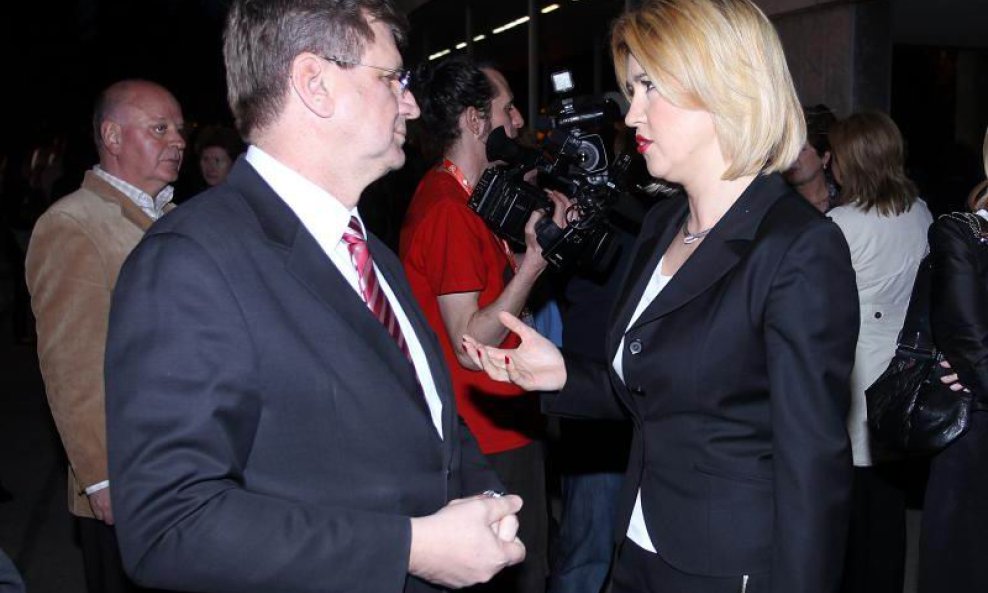Deputy Prime Minister Milanka Opacic and Entrepreneurship and Crafts Minister Gordan Maras on Saturday dismissed employers' claims that Finance Minister Slavko Linic was "stirring up an anti-entrepreneurial climate," accusing them of not using the money the government had ensured by reducing levies and urging them to put their properties to use.
Speaking to reporters, Opacic said the employers were not fair because the government had put a bigger tax burden on citizens this year in order to exempt employers from some levies and improve business conditions, adding that she did not know why the employers had not used this opportunity.
Commenting on the Fitch agency's downgrade of Croatia's credit rating from stable to negative, Opacic said there was still no awareness in Croatia of the need to make changes. She said Croatia had two choices, to continue along the path of the last eight years and end up like Greece and Spain, or to embark on reforms to pull out of the crisis.
Maras said the government had reduced taxes in its first year in office, leaving entrepreneurs an additional HRK 3 billion to launch investments. He said the results were not good and expects the situation to improve in 2013.
He does not believe entrepreneurs are entirely to blame. He said the entire Europe was undergoing a tough transition and that reforms must be carried out. He expects entrepreneurs to take advantage of what the government is doing for them, from more favourable loans to guarantees and tax relief.
Maras said interest groups "must protect their rights and criticise some things this government is doing," urging the employers to "put all their assets to use."
He voiced confidence that the finance minister was the first who wanted to support entrepreneurs so that they could work more easily and swiftly, as did the whole government.
Maras said the solution lay in micro-investments because Croatia could not count on mega-investments.
"The solution to growth in Croatia is in small and medium enterprises and this year's results are good," he said, adding that SMEs grew 1.5 per cent in the first nine months of the year, employing 12,000 more people and investing four per cent more. "The trends are positive," he said.
Reporters asked Labour Minister Mirando Mrsic if it was realistic to expect that expenditures for salaries in the public sector would be cut by HRK 1.7 billion in 2013. "Everyone must realise that next year will be extremely tough. Fitch has downgraded our rating and one of the reasons is the excessive spending for salaries."
"Some public sector unions realise that it's important to maintain the budget so that salaries can be paid on time, while some unions won't give up anything. If they do, they expect the government to commit to paying it back some day, which would make this a loan, but you can't give up something which isn't there."
Mrsic announced major changes to the pension system and labour legislation in 2013.





































